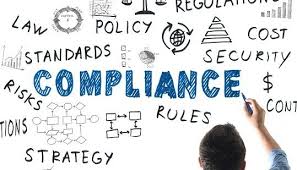Even before the segment aired, mortgage Twitter was ablaze; a CBC Marketplace exposé ran on Friday, October 14 that caught mortgage income fraud in the act, with the help of hidden cameras and hired actors.
In the footage, real estate agents are recorded claiming they can falsify income statements and other documentation for prospective homebuyers, who otherwise wouldn’t qualify for a mortgage. The agents stated that, for a fee, these forged documents would be pushed through lenders’ verification processes with the help of complicit mortgage brokers or chartered bank employees.
The segment included emotional accounts from alleged mortgage fraud victims — mainly newcomers to Canada who say they weren’t aware that what their agent was suggesting was illegal. It also posited, via a series of cold calls to 25 mortgage brokers across Canada, that mortgage professionals are often complicit in this fraudulent activity.
As expected, the special caused an uproarious response within the industry, and raised key questions: just how prevalent is mortgage income fraud? Who is to blame? And what is the industry doing to stop it?
The mortgage business tends to go through “phases” of fraud, particularly when the market is hot. After a lull in 2019 — following a new slew of investigative standards put in place by the banks — fraud blew up again in 2020 and 2021, when pandemic mentality fuelled ferocious buyer appetite.

“It just got away from everybody. We were just trying to get mortgages closed, because there was such an astronomical demand, and that’s also when the fraudsters jumped in again,” he says.
So where exactly is fraud occurring? According to Jerome Trail, mortgage broker at The Mortgage Trail, it’s often bad actors slipping through the cracks in the usually stringent mortgage departments at chartered banks.
“Mortgage brokers are held to a higher standard than a chartered bank employee,” he says. “A chartered bank employee, they can tick a box when they’re working on a file, to say, ‘Oh, that’s a full-time job.’ But the letter of employment can easily say it’s a part-time job. They know they’re not going to get audited, as opposed to us [brokers]; when we submit documentation, it has to say full-time, we have to submit it as full-time, and there is no flexibility — whether we send it to a chartered bank or an everyday discount lender, or even an alternative lender — it has to be factual.”
“There are more issues amongst full-time bank employees than there are mortgage brokers.”
A Regulator Under Fire
The segment also generated some considerable criticism for the Real Estate Council of Ontario (RECO), which is tasked with consumer advocacy and disciplining noncompliant agents. However, the regulator is often derided for lacking teeth, as it acts only on a complaint-made basis, with no mandate to proactively investigate rumours of wrongdoing.
A statement released after the CBC segment by Toronto Regional Real Estate Board President Kevin Crigger calls for RECO to take stronger actions to ensure brokerages — and their brokers of record — are adhering to the standards set out in the Real Estate and Business Brokers Act. Should a brokerage fail to comply with these standards, RECO should “evaluate the fitness of the Broker of Record,” he states.

“As the regulator, we have called on [RECO] for many years to address concerns about unethical behaviour. Realtors have themselves advocated for higher standards with no measurable result. The time for RECO to act is now. TRREB has a professional standards process where we hold Members to account. Our regulator needs to do the same if their role as the issuer of licenses and regulator of the profession is to be effective.”
TRREB is also calling for public disclosure of the names of those individuals identified by the CBC Marketplace investigation, and for the media outlet to provide their uncensored footage to RECO, to allow them to commence an investigation.
In a statement, Joseph Richer, Registrar at RECO, writes that while the regulator is unable to comment on the progress or specifics of any complaint or investigation, “We look forward to receiving any evidence CBC has uncovered supporting its allegations of illegal or unethical conduct on the part of agents and will assess the next steps to investigate possible breaches.”
“We are very concerned about any claims that real estate agents and brokerages in Ontario may be facilitating mortgage fraud. Such criminal conduct would also be a breach of the Real Estate and Business Brokers Act, 2002 (REBBA), and undermines consumer protection and confidence in the real estate sector.”
He adds that prosecution for falsifying information or assisting in the falsifying of information can result in fines up to $50,000, prison for up to two years, or suspension or revocation of the agent’s RECO registration.

As well, according to Ontario Real Estate Association CEO Tim Hudak, there are plans in the works to beef up the power currently held by RECO, which will allow them to investigate and crack down on instances of fraud more effectively, once the newly passed TRESA legislation (to replace the existing REBBA) goes into full effect in April 2023.
“Currently, the system tends to be very much complaint-based, but the ability to proactively track data to go after bad actors, to find out on a localized, brokerages where there are recurring problems — those are important new measures, because we want to see North American-leading standards when it comes to professionalism and ethics in Ontario.”
The Fix (Isn’t) In
The reality is, when it comes to mortgage fraud, Canada’s lenders are up against coordinated and sophisticated networks, who are often laying their groundwork months in advance.
“We’re up against organizations — and they are organizations — that are willing to seed the creation of a company,” says Butler. “They will open up websites and do actual incorporations, and make actual websites and attract social media information 18 months before they start to use it for the fraud. This isn’t a bunch of guys with cut and paste – this is a business that has been set up by terrible people to rip people off to get mortgages at lower rates. If you’re a bank, how do you keep up with that kind of guerilla operation?”
But, he offers, there is a “100% solution” to the issue: the CRA could simply confirm, to verified banks, that the income number submitted on a mortgage file matches that on the individual’s Notice of Assessment. A similar approach taken by the IRS in the US has effectively wiped out similar fraudulent activity in the last decade, he says.
“No matter how good you are at fraud, it’s not easy to invent a social insurance number, and it would take you a lot of time and a lot of effort and huge expense to create a whole person, and give them a separate insurance number, and then file tax documents for them,” he says. “That’s pretty much foolproof, that is unbreakable. You employ that system, and mortgage income fraud goes to zero.”
Monte Friesner and the WantedSA Investigating Team have been investing Mortgage and Real Estate Fraud in Canada for several years and find the frauds are out of control and one of the most explosive scandals was with Home Trust in Toronto, in which the CEO and other executives were instantly fired.
Chronicles of Monte Friesner – Financial Fraud Specialist 
Posted by Andrei Slavenkov – Financial Crime Consultant
Credit to Penelope Graham








